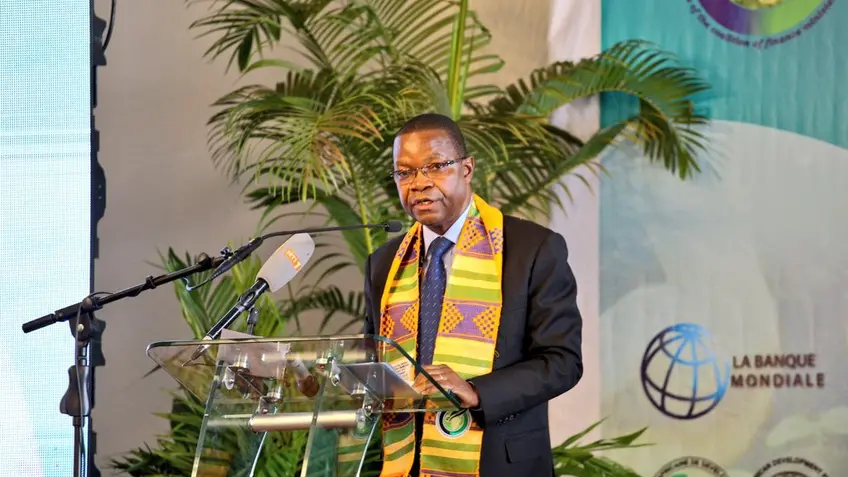Developing Partnership Plans in Line with Country Programs in Côte d'Ivoire
As countries update their NDCs this year, at the front of their minds is how these plans will be financed. Côte d'Ivoire offers an interesting and inspiring example of how to bring different lines of support together to successfully leverage both domestic and international resources.
Key Messages
-
Côte d'Ivoire has jointly developed the Green Climate Fund Country Programme and NDC Partnership “Partnership Plan” to integrate climate change into national planning processes.
-
The two programs complement each other, with the NDC Partnership supporting countries in developing legal and regulatory frameworks that facilitate investment in the Country Programme.
-
Alignment of the two processes avoids duplication and reduces the workload while improving coordination and learning among key stakeholders.
What happened
Côte d'Ivoire has been working closely with both the NDC Partnership and the Green Climate Fund (GCF). The Partnership supports countries in producing a government-led “Partnership Plan” (PP)—a public tool that lays out the country’s prioritized support needs for NDC implementation and tracks the delivery of support against those needs. The GCF works with countries to produce a Country Program (CP), which allows the country to establish the foundation for translating national climate programs, such as NDCs, into investment strategies that prioritize a pipeline of projects and programs for financing support by GCF and beyond. Both are powerful tools that use national development priorities as a starting point and aim to integrate climate change into national planning processes.
What makes the Côte d'Ivoire unique is that it developed the PP and CP in tandem, working closely with both the Partnership and the GCF. Côte d'Ivoire announced its PP and CP in Abidjan on 24th February 2020, making it the first country to launch the tools jointly, alongside the 4th Sherpa Meeting of the Coalition of Finance Ministers. These initiatives reflect Côte d'Ivoire's commitment to undertake a real transition to a low-carbon economy that’s more resilient to the effects of climate change.
How they did it
The Climate Change Directorate (in French, Direction de la Lutte contre les Changements Climatiques) of the Ministry of Environment and Sustainable Development manages institutional relations with both the GCF and the NDC Partnership and acted as a champion to facilitate this process. In a joint statement, Dr. Tiangoua Koné, Côte d'Ivoire’s National Designated Authority (NDA), and NDC Partnership Focal PointMr. Frédéric Zakpa from the Ministry of Environment and Sustainable Development - Ministère del’Environnement et du Développement Durable, in consultation with NDC Partnership Focal Point LarissaKauadio of the Ministry of Economy and Finance, explained that the two programs are strategically complementary to each other, with the NDC Partnership supporting detailed programming of activities within the Country Program. “The GCF is at the macro level of NDC implementation while the Partnership Plan is at the micro level [such that] the Partnership Plan can support the implementation of actions referred to in the Country Program,” explained Dr. Koné and Mr. Zakpa.
Throughout the development of both the PP and CP, the NDC Partnership Support Unit and the GCF regional team organized monthly strategic check-ins, which allowed the DLCC to assess which projects and programs identified in the NDC should be prioritized for GCF financing. The CP supports financial structuring and the PP supports the implementation of NDC actions. Linking the two planning tools eliminates duplication, allows resources to be used more effectively and can help attract co-finance for GCF prioritized projects through the NDC Partnership’s network.
Why it’s important
Developing a PP or CP together, or making sure they align where one already exists, brings a lot of advantages, including: identifying priority actions on climate change adaptation and mitigation in a systematic way; calculating costs of total investments, from policy framework to designing of projects and implementing them; securing finance; and tracking and reporting on spending. Aligning these processes not only avoids duplication and reduces the workload. It also improves coordination and learning among the stakeholders involved.
Above all it helps ensure that these complementary tools reinforce each other. For instance, the PP is well-suited to support countries in developing legal and regulatory frameworks that facilitate investment. The CP meanwhile directly connects projects and programs to the large-scale finance that the GCF and others can bring.
What’s next
The CP is undergoing additional refinement and will be finalized in June 2020. Côte d'Ivoire plans to submit its revised NDC by July 2020. Mitigation and adaptation pledges contained in the revised NDC will serve to inform renewed outcome-level targets of the Partnership Plan. Climate finance is mobilized at the national level through the National Platform on Green Finance and Resource Mobilization (in French: Plateforme nationale sur la finance verte), a state-mandated inter-ministerial platform coordinated by the Ministry of Economy and Finance with a steering committee and a technical committee.
The CP and PP will be essential tools to support discussion on the platform and support NDC implementation. The GCF supports the platform in the development of a national strategy for the mobilization of green resources. This strategy should make it possible to identify other climate finance instruments and mechanisms.
Meanwhile, others are looking to learn from the Côte d'Ivoire experience, with countries like Burkina Faso expressing interest in integrating their PP and GCF CP. Hopefully the leadership of Côte d'Ivoire will make it a little easier for all countries to access the finance they need to both fight climate change and drive their national development priorities.
Learn more about the work of the NDC Partnership in Cote d’Ivoire by visiting our Country Page.
This blog was written by Skylar Bee, Nathan Mesnildrey, and Sam Morton of the NDC Partnership Support Unit.
